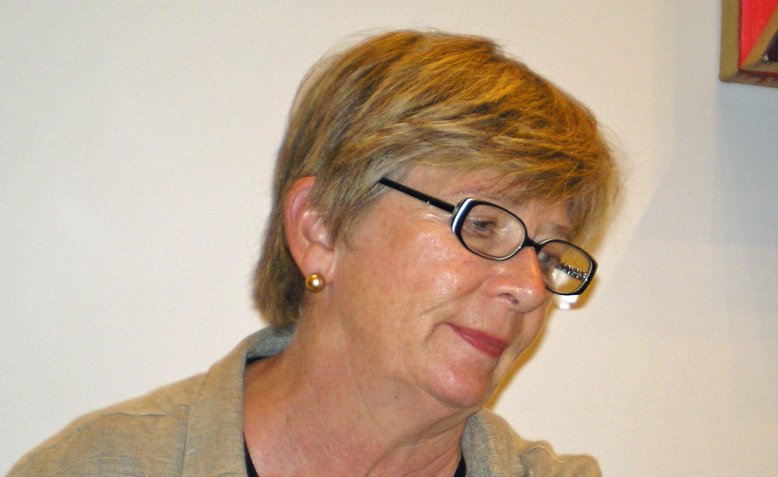 Barbara Ehrenreich. Photo: David Shankbone / Wikimedia Commons / CC BY-SA 2.5, license linked below article
Barbara Ehrenreich. Photo: David Shankbone / Wikimedia Commons / CC BY-SA 2.5, license linked below article
Lindsey German pays tribute to the life and contributions of socialist feminist Barbara Ehrenreich who recently passed away
The death of Barbara Ehrenreich, announced at the weekend aged 81, marks the passing of a genuinely original thinker on the US socialist feminist left. She wrote on a range of issues including women’s health, class and work and brought to them a fresh perspective.
Certainly the book most cited in appreciations of her work is Nickel and Dimed: On (not) getting by in America, written in 2001 and a brilliant account of how many workers simply can’t manage on the wages being paid in the richest country in the world. Her research for the book was unusual to say the least: Ehrenreich decided at a relatively advanced age to take on a range of low-status, low-paid jobs in Florida to find out exactly what life was like for those doing cleaning, shop work and waitressing.
Her experiences cover the work itself, and its dull repetitive nature, the toll this takes physically on workers and the pain they sometimes endure as a result, the hidden costs of renting flats which force low-paid workers to live in motel accommodation, the extra costs of food when you don’t have cooking facilities, the nature of the cleaning and how it differs from traditional working-class life, the intrusive role of management in the whole process. She is scathing about the idea that these are unskilled jobs, pointing to the various often sophisticated techniques and approaches used to ensure tasks are done rapidly.
This was one of her later projects, She was born Barbara Alexander into a mining family in Butte, Montana, in 1941, went to university where she studied various sciences. With her first husband, John Ehrenreich, she was best known for developing theories about the Professional Managerial Class (PMC) to describe the new layer of higher educated white collar managers, academics and business professionals, developing insights into their role and culture.
During the 1970s she developed a number of ideas about women’s health. Her book For her own Good: two centuries of the experts’ advice to women (written with Deirdre English, 1978) was a remarkable work which discussed the attitudes to women’s health from professionals under capitalism. This was one of the breakthrough areas of ‘second wave’ feminism as it portrayed the real nature of women’s health and the many sexist assumptions behind attitudes to it. This might not seem so controversial now, but this was a time when questions of abortion, contraception, rape and domestic violence were regarded by many as individual issues with no wider social context. Now it is much more common to recognise the frequently misogynistic approach to women in medicine. Ehrenreich’s earlier work Witches, Midwives, and Nurses: A History of Women Healers (1972) was also an important contribution to challenging the dismissal of women who treated such ailments, including being characterised sometimes as witches.
Ehrenreich was active in the Democratic Socialists of America, where she could be characterised perhaps as on the left of the mainstream. She wrote extensively on a range of questions and often approached them from an interesting angle. She was particularly good in criticising issues close to the heart of HR departments who are keen to increase the rate of exploitation while telling us all to take care of ourselves. She referred to the ‘epidemic of wellness’ in one of her books, and in another entitled Smile or Die (2009) she lambasted the whole notion of ‘positive thinking’.
While her socialism and feminism were both of a different sort from the ones I would subscribe to, and her US Democratic Party affiliation an indication of this, she was very different in her approach from Hillary Clinton or Nancy Pelosi. The lives of working-class women were important to her, and she understood the nature of exploitation at first hand. This puts her in a very different place from those who hail female prime ministers as role models, or who believe that women CEOs will turn out any different from their male counterparts. It is a matter of great regret that so much of the fight for women’s liberation has been reduced to the most trite identity politics. Ehrenreich’s writing reminds us that there is so much more to this set of emancipatory ideas that we need to rediscover.
Barbara Ehrenreich 26.8.41-1.9.22
Before you go
Counterfire is growing faster than ever before
We need to raise £20,000 as we are having to expand operations. We are moving to a bigger, better central office, upping our print run and distribution, buying a new printer, new computers and employing more staff.

